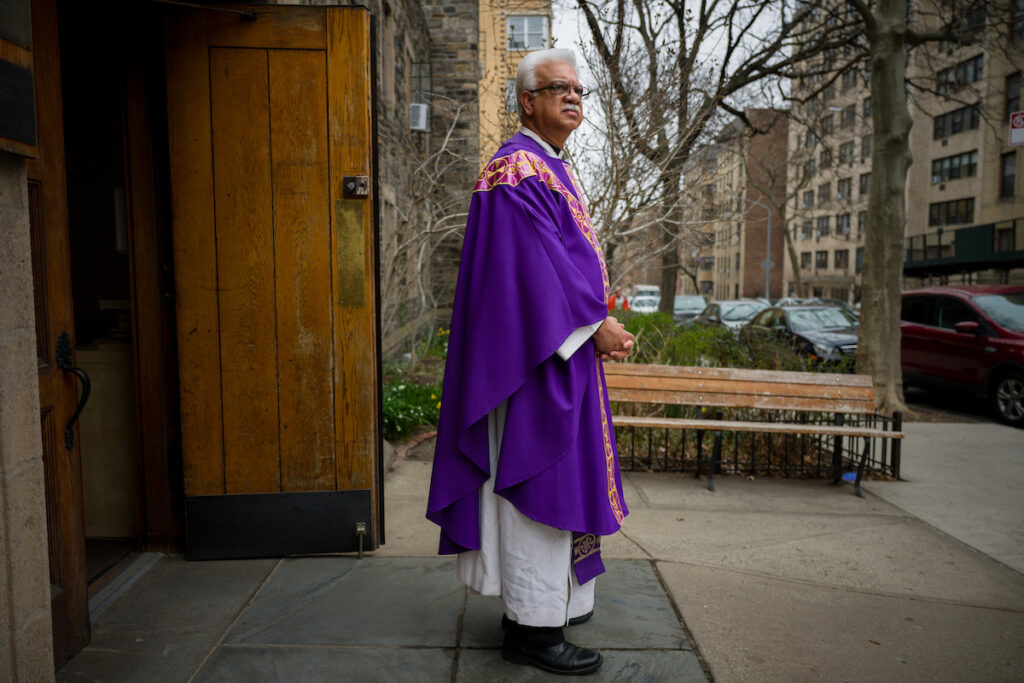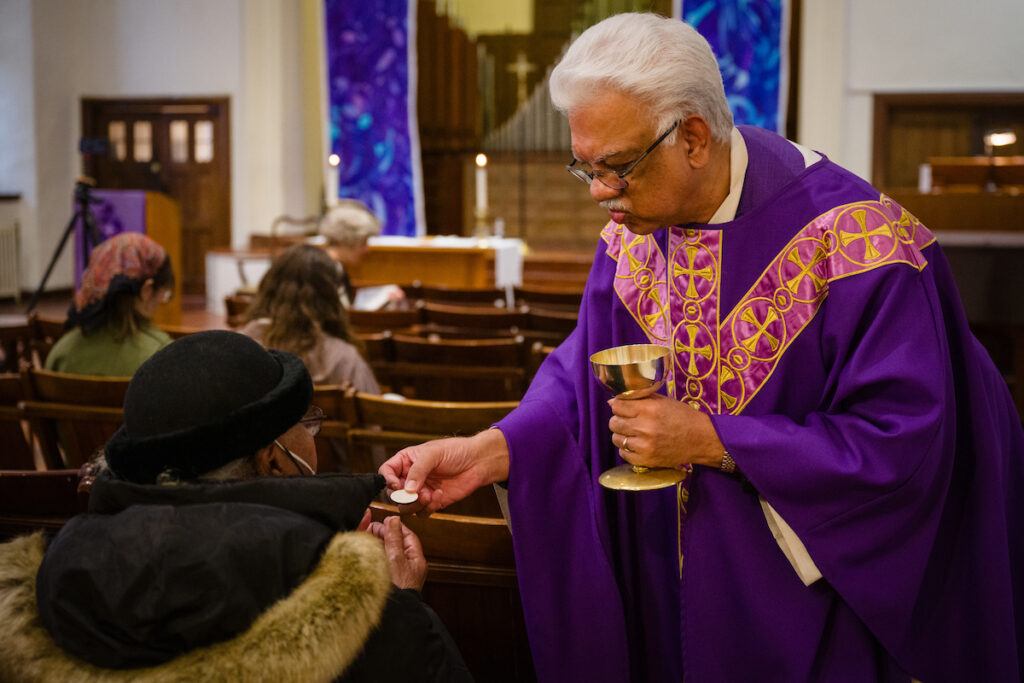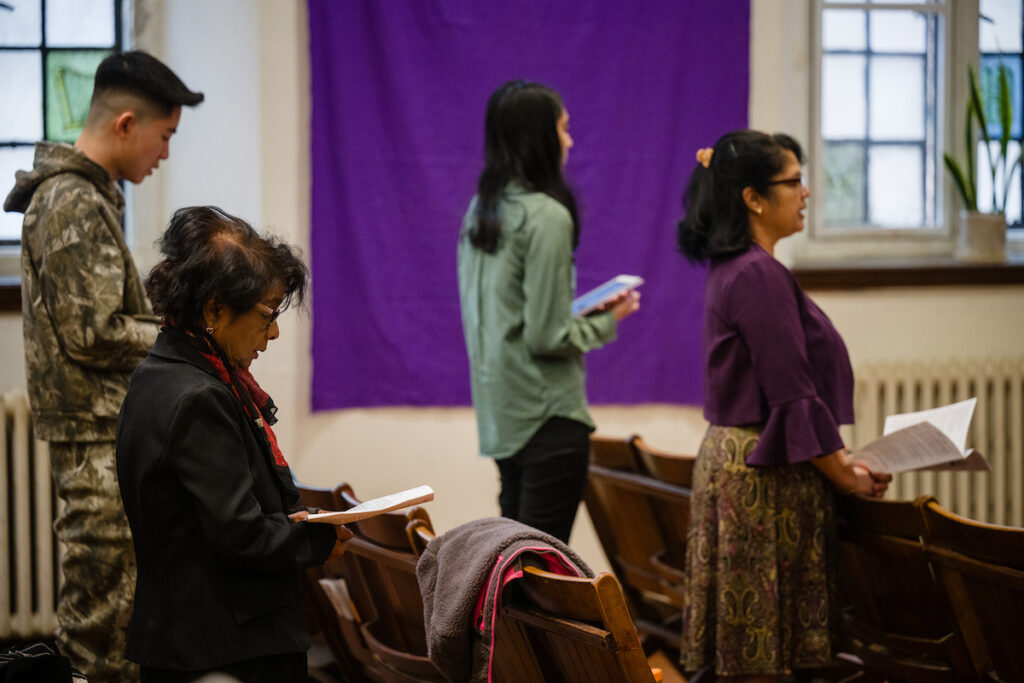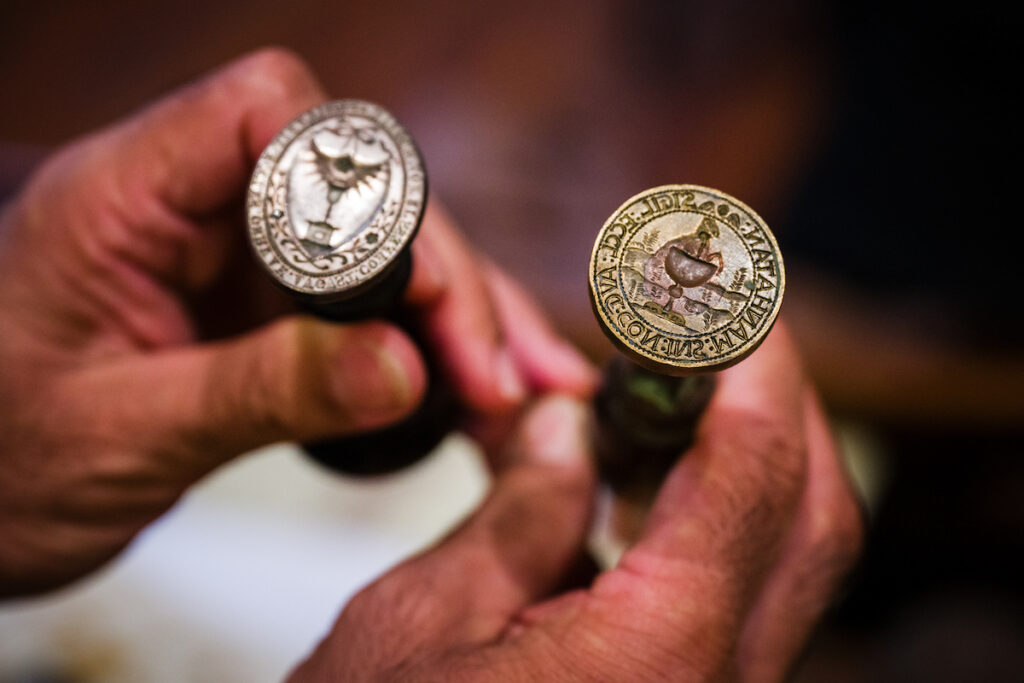Feature
A Congregation Older Than the Nation
The 360-year-old Evangelical Lutheran Church of St. Matthew in New York City has welcomed immigrants throughout the centuries.
In Washington Heights, a neighborhood in New York City, an unassuming congregation gathers on Sunday afternoons in a rented sanctuary. This is the 11th location the congregation has occupied in its history — a history that spans back to 1664, more than a hundred years before the American Revolution. The Evangelical Lutheran Church of St. Matthew had its 360th anniversary last December, making it not only the oldest congregation in The Lutheran Church— Missouri Synod (LCMS), but the oldest extant Lutheran congregation in the Americas.
St. Matthew is a microcosm of American history. When a group of colonists in New Netherland desired a confessional church that worshiped and taught in accordance with the Augsburg Confession, they banded together as the Congregation of the Unaltered Augsburg Confession of Faith and requested a pastor from their mother church in Amsterdam. A pastor came but was denied permission to conduct services and was subsequently deported. After New Netherland was conquered by the British and became New York, the Dutch Lutherans petitioned Richard Nicolls, the first British governor. He granted their request, issuing a charter on Dec. 6, 1664, the legal beginning of the congregation.

An Immigrant Church and Pastor
The church’s seventh pastor, Justus Falckner, was the first Lutheran pastor ordained in America. Henry Melchior Muhlenberg, considered by historians to be the father of American Lutheranism, served as pastor of a German split-off from the church that would later reunite with the original congregation. In 1821, the Rev. Frederick Schaeffer sent the homily he preached at the cornerstone laying of the church’s new building to none other than James Madison, primary author of the Bill of Rights, who thanked Schaeffer for sending him the “pleasing and persuasive example of pious zeal.” The next year, the church began holding English services under the name the Evangelical Lutheran Church of St. Matthew.
“I think the church has always been an immigrant church,” says the Rev. Peter A.D. Deebrah, pastor of St. Matthew. “In its incipient stage, it was a coming together of people — Lutherans — from different countries in Europe.”

Deebrah himself is a living example of the American story as well as the story of how God calls workers to His harvest. Deebrah was born just north of Brazil in Guyana, a former British colony that gained independence in 1966. He is descended from Indian indentured laborers brought to the colony to work on sugar plantations after the British Empire outlawed slavery in 1834.
As a young boy, Deebrah remembers imagining what it would be like to be a pastor: “I would look at the pastor there who baptized me, and I would daydream that one day I will stand there in the pulpit and do what he is doing.” Highly involved in congregational life as a young man, he applied for permission to attend seminary at the age of 22 but was turned down; instead, he was encouraged to return to the idea when he was older and more settled. So, Deebrah became a computer engineer and served the church as a deacon.
But his desire to be a pastor remained. When political violence erupted in Guyana in 1998, he moved with his wife and children to America. After expressing his desire to attend seminary, he was recommended for the new DELTO (Distance Education Leading to Ordination) program through Concordia Theological Seminary, Fort Wayne — a program designed for lay deacons who desired to become pastors but were unable to relocate to the seminary. Seminary pastors would travel to regional sites for weekend intensives and would grade assignments submitted through the mail while the students served in congregations under the supervision of area pastors. Deebrah began his DELTO coursework in November 1998 and was assigned to St. Matthew, which was vacant at the time. When he completed his coursework in 2005, he was ordained and called as sole pastor.
In the Cross of Christ We Glory
St. Matthew seems very different today than it was 360 years ago; scratch beneath the surface, though, and you’ll find that its foundation on Christ and its history as a church home for new Americans is fully intact.

Today, most members originally hail from the Caribbean. Upon coming to America, many sent their children to St. Matthew’s former day school and became members of the church through outreach done there. This was the case for Claire Charles from Trinidad, whose grandson’s catering business provided the food for their “standing room only” 360th anniversary celebration.
Lois Franklin, originally from Belize, started attending because of her daughter’s experience in St. Matthew’s nursery school. “I like the preaching,” Franklin explains.
Louisa Noel, also from Belize, says that her favorite part of Sunday morning is “feeling refreshed to carry on for another week in these trying times.”
Challenges persist, but faith and hope abound. Deebrah says St. Matthew is “a church on the move,” and always has been. But the largest move the church has made was not physical: In 1885, St. Matthew left the New York Ministerium it had helped found and joined the 38-year-old LCMS, where its confessional stance was more at home. There have been plenty of changes to the church’s physical location too: The congregation has met at locations ranging from Wall Street to Broadway to Harlem.

In 2006 — the year after Deebrah was ordained — the congregation was forced to sell its church building, school and parsonage, and it has been renting space from another church in Washington Heights ever since. The loss of the building did not mean the loss of the preaching, teaching and administration of the Sacraments, however.
“A lot of people thought that … we would die. But we did not,” Deebrah beams. “With every Baptism, with every person who is received through the affirmation of faith,” the life of the church goes on.
One newcomer is Fordham undergraduate student Will Jing, who has been attending for the last year and a half. Jing did not grow up Christian. Curious about Christianity, he found St. Matthew after searching online. “You forget that it’s a small congregation, because the people are so welcoming,” Jing says. “It doesn’t matter that the congregation is small as long as your religious needs are taken care of and you have a good community around you.”
Roger Clinton, organist and congregational president at St. Matthew, sees the present situation as a blessing: “It feels special, being the oldest Lutheran church in the Americas. And it helps me to reflect on how far we’ve come, and how we’ve been able to still hold on, despite our small numbers.”
Deebrah echoes these sentiments. He feels incredibly grateful to be serving at St. Matthew, especially in light of his family’s history. “That I should be blessed by God to be serving the oldest Lutheran church in America and in the New World … is humbling … [as] a descendant of indentured servants.”
He adds, “There is nothing better than being a servant of Christ, to meet people where they are and to listen to them and to cry with them and to pray with them and to celebrate with them. … We cannot boast of numbers, but it is in the cross of Christ that we glory.”
Learn More
It’s never too late to become a pastor and serve the Lord and His church in the holy ministry. Many pastors, just like Pastor Deebrah, pursue the holy ministry as their second career.
Set Apart to Serve (SAS) is building a culture of church work formation and recruitment throughout our Synod. To help Lutherans talk to young people and adults alike about considering church work as their full-time vocation, SAS has developed numerous resources, from conversation guides to Bible studies to PowerPoint presentations.
Do you know someone at your church who would make a great pastor? Resources geared specifically toward helping adults consider second careers in church work are coming out soon. Find SAS resources at resources.lcms.org/set-apart-to-serve.
Share Jesus with the World
Your generosity today makes possible your Synod’s witness and mercy efforts both at home and abroad.
Are you looking to direct your gifts for work that’s more specific?
Visit the LCMS online ministry and mission catalog to find those opportunities most meaningful to you!
Don’t see what you’re looking for?
Contact LCMS Mission Advancement at 888-930-4438 or mission.advancement@lcms.org to talk about all the options available.
Molly Lackey
Staff writer for LCMS Communications.

